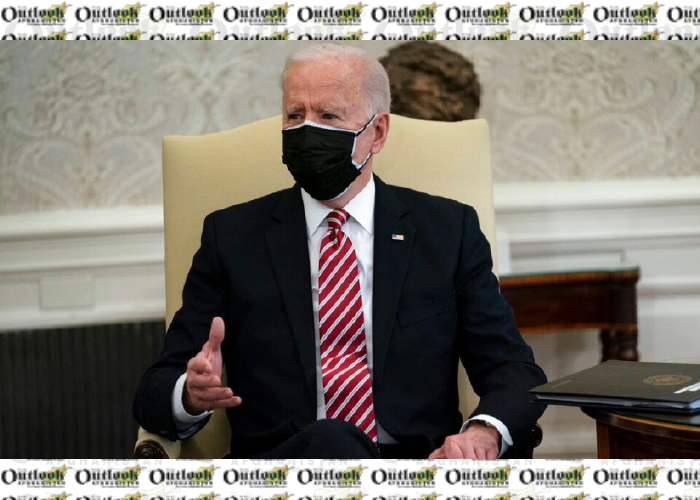WASHINGTON- Joe Biden will make his first big appearance on the global stage as president on Friday, offering Group of Seven allies and other foreign leaders a glimpse into his plans to dramatically reshape U.S. foreign policy even as he deals with a number of international crises that are coming to a head.
In advance of Biden’s virtual appearances at a G-7 meeting and the Munich Security Conference, the White House sought to underscore that the new administration will move quickly to reorient the U.S. away from Donald Trump’s “America First” mantra by announcing major reversals of Trump administration policies.
Biden was expected to use his address to the Munich conference to stress that the U.S. stands ready to rejoin talks about reentering the 2015 multilateral Iran nuclear deal abandoned by the Trump administration. The Biden administration announced Thursday its desire to reengage Iran, and it took action at the United Nations aimed at restoring policy to what it was before President Donald Trump withdrew from the deal in 2018.
Biden was also expected to address economic and national security challenges posed by Russia and China, as well as the two-decade war in Afghanistan, where he faces a May 1 deadline to remove the remaining 2,500 U.S. troops under a Trump administration negotiated peace agreement with the Taliban.
His message was to be girded by an underlying argument that democracies -- not autocracies -- are models of governance that can best meet the challenges of the moment, according to a senior administration official who previewed the president’s speech for reporters.
At the G-7, administration officials said, Biden was to focus on what lies ahead for the international community as it tries to extinguish the public health and economic crises created by the coronavirus pandemic. White House officials said Biden would announce at the G-7 that the U.S. will soon begin releasing $4 billion for an international effort to bolster the purchase and distribution of coronavirus vaccine to poor nations, a program that Trump refused to support.
Both the G-7 and the annual security conference are being held virtually because of the pandemic.
Biden’s turn on the world stage comes as the U.S. on Friday officially rejoins the Paris climate agreement, the largest international effort to curb global warming. Trump announced in June 2017 that he was pulling the U.S. out of the landmark accord, arguing that it would undermine the American economy.
Biden announced the U.S. intention of rejoining the accord on the first day of his presidency, but he had to wait 30 days for the move to go into effect. He has said that he will bake considerations about climate change into every major domestic and foreign policy decision his administration faces.
His first foray into international summitry will inevitably be perceived by some as simply an attempted course correction from Trump’s agenda. The new president, however, has made clear that his domestic and foreign policy agenda won’t be merely an erasure of the Trump years.
“I’m tired of talking about Donald Trump,” Biden lamented earlier this week at a CNN town hall in Milwaukee.
Biden on the campaign trail vowed to reassert U.S. leadership in the international community, a role that Trump often shied away from while complaining that the U.S. was too frequently taken advantage of by freeloading allies.
To that end, the White House said Biden would be encouraging G-7 partners to make good on their pledges to COVAX, an initiative by the World Health Organization to improve access to vaccines, even as he reopens the U.S. spigot.
Trump had withdrawn the U.S. from WHO and refused to join more than 190 countries in the COVAX program. The Republican former president accused WHO of covering up China’s missteps in handling the virus at the start of the public health crisis that unraveled a strong U.S. economy. (AP)
Home » World » Biden to Lay out His Foreign Policy at G-7, Munich Summit
Biden to Lay out His Foreign Policy at G-7, Munich Summit

